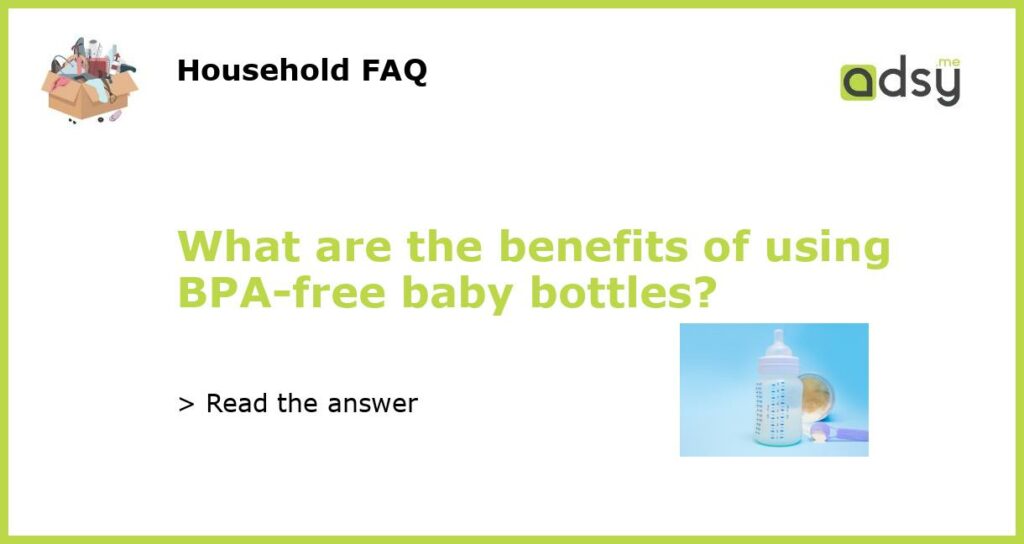The Dangers of BPA
Bisphenol A (BPA) is a chemical that has been used for years to harden plastics and has been found to be harmful to humans in large doses. Studies have shown that BPA can lead to developmental problems in fetuses, infants, and children. BPA can also mimic estrogen and disrupt the endocrine system, leading to health problems such as obesity, infertility, and certain types of cancer. As a result, many parents are now turning to BPA-free baby bottles as a safer alternative.
What Are BPA-Free Baby Bottles?
BPA-free baby bottles are made without the use of bisphenol A (BPA), a chemical commonly found in household plastics. Instead, these bottles are typically made with materials such as glass, stainless steel, and polypropylene. These materials are considered safe alternatives as they do not contain BPA and are less likely to leach harmful chemicals into liquids.
The Benefits of BPA-Free Baby Bottles
One of the main benefits of using a BPA-free baby bottle is that it can help reduce the risk of exposure to harmful chemicals. By using a BPA-free bottle, parents can have peace of mind knowing that they are providing their baby with a safer feeding option. Additionally, BPA-free bottles are often made with more durable materials, which can make them a better long-term investment as they are less likely to crack or break with repeated use.
The Downsides of BPA-Free Baby Bottles
While BPA-free baby bottles have many benefits, they are not without their downsides. For one, they are often more expensive than traditional plastic bottles. Additionally, some parents may find that BPA-free bottles are heavier and more difficult to handle, particularly if they are made of glass or stainless steel. Finally, some studies have suggested that BPA-free plastics may contain other chemicals that could be harmful, although more research is needed to determine the long-term effects of these chemicals.
Are BPA-Free Baby Bottles Right for You?
In conclusion, there are many benefits to using BPA-free baby bottles, including a reduced risk of exposure to harmful chemicals and higher durability. However, they are not without their downsides, such as a higher cost and potential difficulty in handling. Ultimately, the decision to use BPA-free bottles or not depends on personal preference and budget. Parents who are concerned about the potential risks of BPA exposure may want to consider using BPA-free bottles, while other parents may be comfortable sticking with traditional plastic bottles. As with any parenting decision, it is important to weigh the pros and cons and make the best choice for you and your baby.






